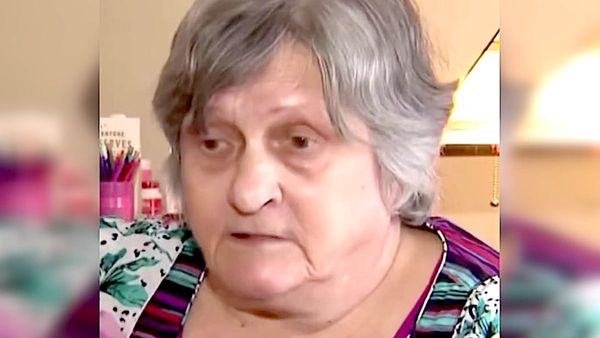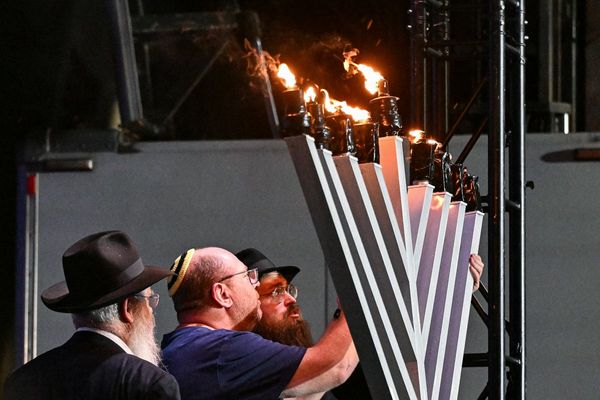
Human rights advocates have criticised the prime minister, Scott Morrison, after he wrongly claimed those held in detention in Australia for as long as eight years had not been recognised as refugees.
Australia’s harsh border policies have been thrust into the spotlight since the detention of tennis star Novak Djokovic at the notorious Park hotel in Melbourne, where dozens of asylum seekers and refugees are detained indefinitely.
Guardian Australia understands that there are 25 refugees and seven asylum seekers currently held in the Park hotel.
Speaking to 2GB radio on Monday, Morrison was asked by presenter Ben Fordham how it was “acceptable” that refugees in the same hotel as Djokovic had been detained for almost nine years with taxpayers spending millions of dollars “to keep them in limbo.”
In response, Morrison suggested the detainees were not refugees.
“Well, the specific cases, Ben, I mean, it’s not clear that to my information that someone in that case is actually a refugee,” he said.
“They may have sought asylum and been found not to be a refugee and have chosen not to return, and … that happens in this country, people aren’t found to be refugees and they won’t return.”
But Elaine Pearson, the Australia director of Human Rights Watch, told the Guardian that most of those held in the Park hotel had been granted refugee status.
“It’s an outright lie to say that these people are not refugees, when most of them have had their refugee status formally recognised for years,” Pearson said.
“They’ve been through that process and it is established that they simply can’t return to their country.”
“To somehow claim they are waiting around because they should be going home is absolutely inaccurate. And it is grossly misleading for our prime minister, who used to be the immigration minister, to be spreading this misinformation.”
Pearson said Australia had a long track record of trying to cast doubt on the claims of people who seek asylum.
“If you look at who’s being detained, it is men who have been shunted from one centre to another, in Australia or offshore, for more than eight years. At what point in time do you say they have suffered enough? They can’t simply continue to be used, for the rest of their lives, as a symbol of deterrence. They need to be allowed to move on with their lives.”
Mehdi, a refugee held in the Park hotel who fled Iran as a child, aged 15, arrived in Australia by boat in 2013. He has marked nine birthdays since, either in immigration detention in Australia or held in offshore processing centres.
His claim to refugee status was formally recognised by the Australian government in 2014. Mehdi – he only uses one name – has a “well-founded fear of being persecuted” in Iran, and he cannot legally be returned there.
“I am a refugee. If I wasn’t, why would I endure such a difficult time as a child if I have the option to go back to where I came from?” Mehdi told Guardian Australia.
Mehdi said he is still not safe in detention. Australia’s Nauru offshore processing centre, the government’s own reports reveal, was plagued by child physical and sexual abuse, violence and mental health trauma. The hotel where he is currently detained has been at the centre of repeated Covid-19 outbreaks.
“The government’s treatment of detained children is not in line with Australian domestic law. Children may only be detained for the shortest appropriate time, and we were innocent children who were intentionally exposed to horrible experiences.
“Depriving me of education, both when I was 15 and now, reflects a discriminatory attitude, because education is a right that must be upheld under the Universal Declaration of Human Rights. I received minimal education in a world where knowledge comes first, an obvious right for children.”
Nina Field, a detention advocacy caseworker with the Asylum Seeker Resource Centre, said those detained in the Park hotel had been held against their will by the Australian government for nearly nine years.
“The people held in Park hotel are almost all refugees. They were brought to Australia from offshore detention in Nauru or [Papua New Guinea] for medical treatment – which for the most part they have not received. Instead, they have been left to suffer in limbo in detention centres and airless hotel rooms for more than two years. In these places, they sometimes have to wait for hours just to get a Panadol.
“Now, the prime minister appears to be further demonising them by suggesting that they have somehow ‘failed’ in their refugee claims and are ‘choosing’ not to return. They have no such choice.”
When asked about Labor’s position on those held in detention, Labor’s shadow home affairs minister, Kristina Keneally, said the party supported them being held in community detention while their cases were finalised.
“Labor has been saying for months now, that if these refugees are able to live in the community they should do so,” Keneally said.
“In fact, we agreed with Peter Dutton, when he said it was more cost-effective to have these people living in the community while the outcome of their cases are determined. It is really now up to Karen Andrews to explain why that’s not happening.”
The prime minister’s office was contacted for comment.







